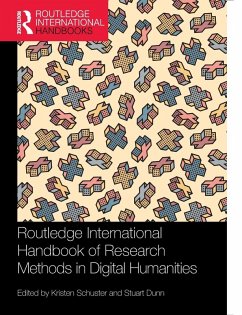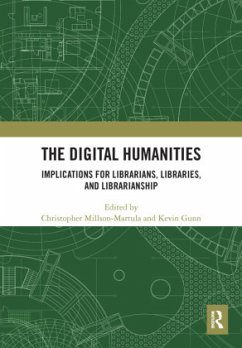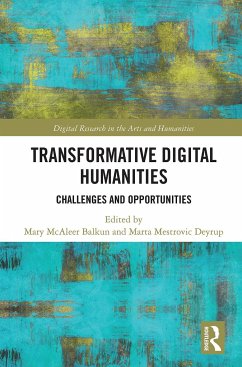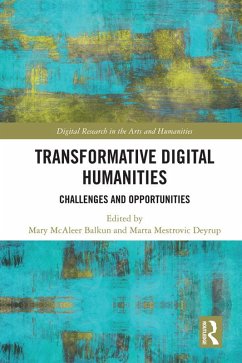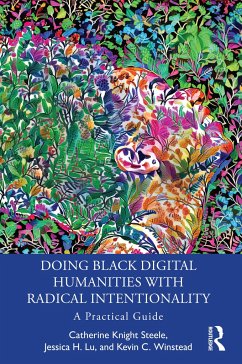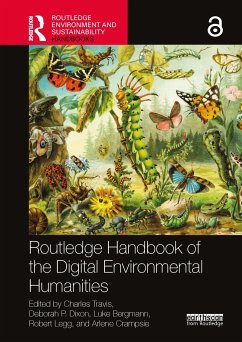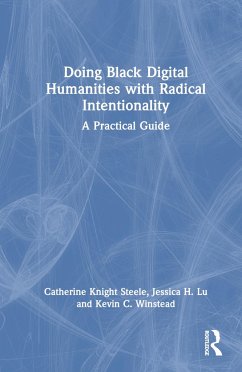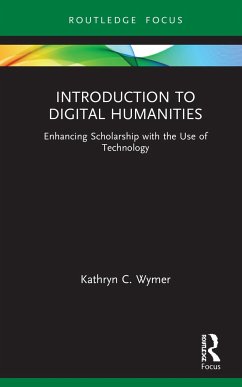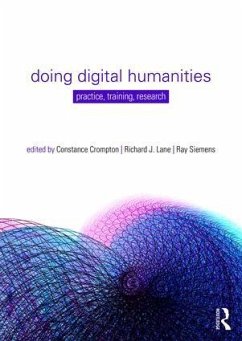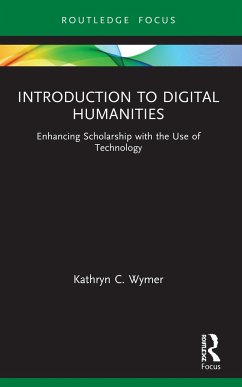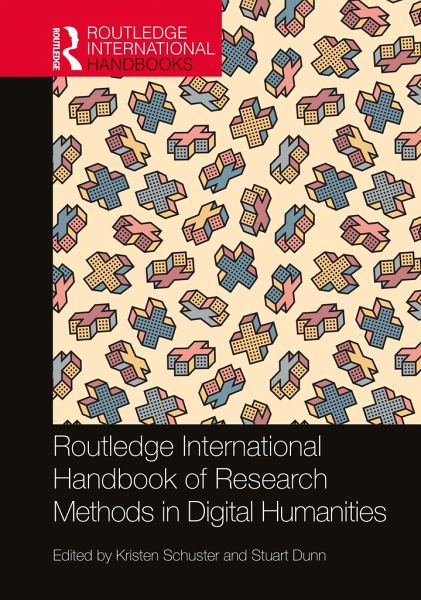
Routledge International Handbook of Research Methods in Digital Humanities
Versandkostenfrei!
Versandfertig in 6-10 Tagen
230,99 €
inkl. MwSt.

PAYBACK Punkte
115 °P sammeln!
This book draws on both traditional and emerging fields of study to consider consider what a grounded definition of quantitative and qualitative research in the Digital Humanities (DH) might mean; which areas DH can fruitfully draw on in order to foster and develop that understanding; where we can see those methods applied; and what the future directions of research methods in Digital Humanities might look like.Schuster and Dunn map a wide-ranging DH research methodology by drawing on both 'traditional' fields of DH study such as text, historical sources, museums and manuscripts, and innovativ...
This book draws on both traditional and emerging fields of study to consider consider what a grounded definition of quantitative and qualitative research in the Digital Humanities (DH) might mean; which areas DH can fruitfully draw on in order to foster and develop that understanding; where we can see those methods applied; and what the future directions of research methods in Digital Humanities might look like.
Schuster and Dunn map a wide-ranging DH research methodology by drawing on both 'traditional' fields of DH study such as text, historical sources, museums and manuscripts, and innovative areas in research production, such as knowledge and technology, digital culture and society and history of network technologies. Featuring global contributions from scholars in the United Kingdom, the United States, Europe and Australia, this book draws together a range of disciplinary perspectives to explore the exciting developments offered by this fast-evolving field.
Routledge International Handbook of Research Methods in Digital Humanities is essential reading for anyone who teaches, researches or studies Digital Humanities or related subjects.
Schuster and Dunn map a wide-ranging DH research methodology by drawing on both 'traditional' fields of DH study such as text, historical sources, museums and manuscripts, and innovative areas in research production, such as knowledge and technology, digital culture and society and history of network technologies. Featuring global contributions from scholars in the United Kingdom, the United States, Europe and Australia, this book draws together a range of disciplinary perspectives to explore the exciting developments offered by this fast-evolving field.
Routledge International Handbook of Research Methods in Digital Humanities is essential reading for anyone who teaches, researches or studies Digital Humanities or related subjects.





